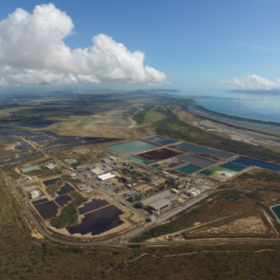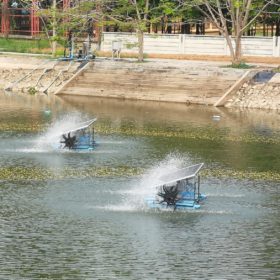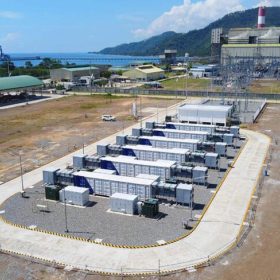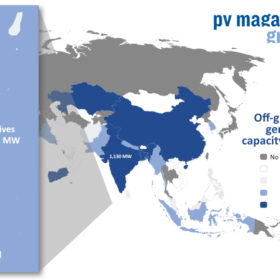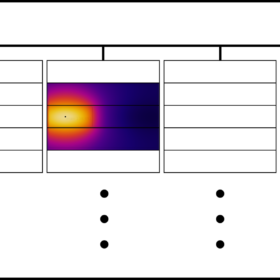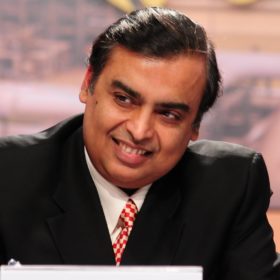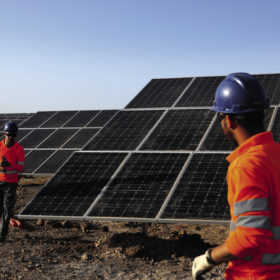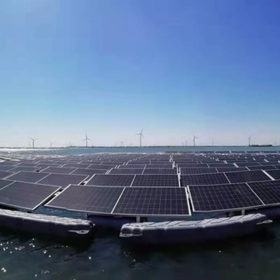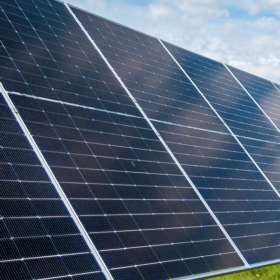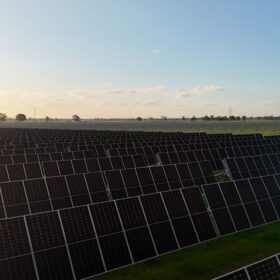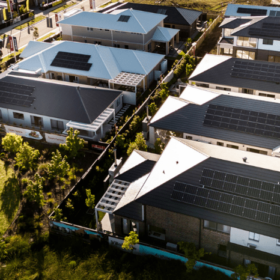Asia-Pacific solar supply chain trouble to ease this year, according to analyst
Wood Mackenzie has predicted solar equipment cost increases will ease back after last year saw the average cost of solar electricity rise for the first time in the Asia-Pacific region.
Korea Zinc invests in gravity storage developer Energy Vault
Korea Zinc, non-ferrous metal smelting company, has agreed to invest $50 million in Energy Vault, a Switzerland-based gravity storage specialist, in order to use its tech to decarbonise its refining and smelting operations in Australia.
Weekend read: Solar-plus-storage for aquaculture aeration
Recent research from Thailand has shown that solar-plus-storage on floating platforms could be the cheapest option to power energy-intensive aeration systems in aquaculture projects. The battery accounts for around 54% of the capital costs, which is why system sizing would be key for economic viability.
Philippines’ San Miguel Corp to start operation of 690MW of batteries
Filipino conglomerate San Miguel Corp aims to complete 1GW of battery storage projects this year to make way for the integration of some 3GW of intermittent renewable energy generation.
Maldives to turn to solar for outer islands
The Indian Ocean island nation, which has been a prominent voice in the global calls to combat rising sea levels, will get technical assistance from the Asian Development Bank to draw up a tender for 20-30MW of photovoltaic generation capacity.
Novel design for shingled solar modules
Researchers in Singapore have created a flexible framework for designing hotspot-resistant shingled modules. Their work is claimed to be perfectly compatible with existing manufacturing techniques.
Reliance Industries to acquire sodium-ion battery provider Faradion
Reliance Industries said its solar unit will buy UK-based sodium-ion battery technology provider Faradion for GBP100 million (AUD$187 million) including debt, as the Indian conglomerate pushes forward with its ambitious plan to move into the renewable energy industry.
Getting real about the hydrogen economy
Hydrogen is frequently touted as a major player in decarbonisation, and it is. But it will only be used at scale much later, and at a much lower level than solar and wind.
Rystad: Residential solar soars past C&I in 2021
Renewable energy and battery storage has racked up another banner year in 2021, according to end-of-year analysis from Rystad Energy. While there was growth across segments, residential solar has seen the most impressive gains, surpassing the commercial and industrial (C&I) segment for the year.
World’s largest floating PV plant goes online in China
Huaneng Power International has switched on a 320 MW floating PV array in China’s Shandong province. It deployed the plant in two phases on a reservoir near its 2.65 GW Dezhou thermal power station.
